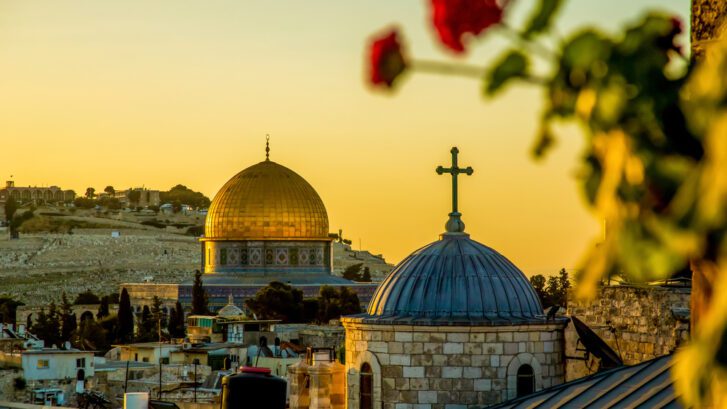On the night of February 28, 2025, millions of eyes literally and figuratively will look up into the evening sky to see the hilal, or the first crescent of the new moon.
Once the new moon has been officially sighted, the next day begins Ramadan, the ninth month of the Muslim calendar and the Month of the Fast. The exact beginning of Ramadan depends on this sighting of the new moon, which occurs anytime within a two–day period. As a result, it is never absolutely certain in any given year when Ramadan officially begins. What is absolutely clear is that Ramadan is the most important event of the year for Muslims.
Similarly, because the Muslim year is lunar, i.e., calculated by the moon, it is about 11 days shorter than the solar calendar, which is familiar to most people. As a result, every year Ramadan is about 11 days “earlier” than the year before.
On Wednesday, March 5, 2025, Western Christians begin Lent, the 40-day penitential preparation for Holy Week and Easter Sunday. Orthodox Christians begin Lent on Monday, March 3, 2025.
Because Western and Orthodox Christianity use different liturgical calendars (calculations), it is uncommon for their Easter Sundays to occur at the same time. And because Muslims follow a totally different calendar, it is rare for Ramadan and either Lent to overlap. For all three to overlap is almost unheard of. Yet that is the case in 2025.
Although Ramadan and Lent involve fasting, the Muslim fast differs from the Christian in several ways. During Ramadan, Muslims abstain from all food and liquids, sexual activity and putting anything in their body such as cigarettes from sunrise to sunset.
While Christian Lent—both Western and Orthodox—is a time of penance, Ramadan is seen as a time of joyful worship of God. Every night after sunset, Muslims hold an ifṭār or celebratory meal. A delightful new “tradition” is emerging in many places where Muslims invite their non-Muslim neighbors to the ifṭār.
Despite the differences between Ramadan and Lent, the question asked of Jesus in Luke’s Gospel and who is my neighbor (Luke 10:29) rings out with hope and challenge. The hope is that Christians and Muslims can as friends and neighbors respectfully worship God, albeit in different ways. The challenge is recognizing our call as believers to banish hatred, violence, and bigotry in our world, regardless the source, and in our own ways beg God, “Lord, make me an instrument of your peace!”
Elias D. Mallon, SA, PhD
Lent 2025 AD
Ramadan 1446 AH


In some countries Christians also fast every day, not eating from sunrise to sunset. In Senegal, where I lived for several years, this kind of fast is common. The solidarity of Christians and Muslims will be strong this year as Ramadan and Lent coincide. Thank you for highlighting this.